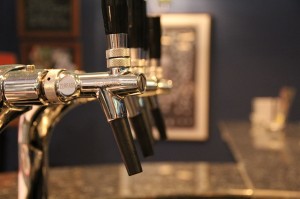Fourteen recent decisions by the Massachusetts Alcoholic Beverages Control Commission (“ABCC” or “Commission”) were published in early May. Eleven of the fourteen decisions involved allegations of sales of alcoholic beverages to a person under the age of 21, two concerned “automatic amusement devices”, and one the rules for “club” licenses. The moral of the May decisions? If you have to be a liquor licensee caught violating a liquor law, be in business for many years before that happens – and don’t let it happen twice!
The club license decision was perhaps the most unusual. The Polish American Citizens Club of Webster received an indefinite suspension from the Commission in July of last year for failing to file annual reports with the ABCC for the years 2003 – 2012, and also for having changed officers and directors without appropriate approvals from local and state licensing authorities. The Club brought its records up to date, and the ABCC rescinded the indefinite suspension. However, the Club went without a license from the end of July to the beginning of November. The decision serves as a reminder to club licensees of the need to file annual reports with the ABCC concerning their officers and their compensation.
The two “automatic amusement devices” cases were brought for having such devices (which are licensed under M.G.L. c. 140 §177A) in rooms that were closed off and not in open view at all times. The Commission cited the licensees under the Alcoholic Beverages laws for “permitting an illegality” on their premises, in violation of 204 CMR 2.05(2). Each of the licensees installed “see-through” doors after the date they were cited but before the hearing, and was given a warning by the Commission, which noted that each licensee had been in operation for many years without previous violations (for 22 years and “over 100 years”, respectively).
Turning to the “sales to minor” decisions, ten of the eleven concerned “sting operations,” where ABCC Investigators send an underage operative into a licensed premises to attempt to purchase alcohol. In the eleventh case, the ABCC investigators encountered an under-aged patron who had already been served an alcoholic beverage without benefit of a “sting”. In each of the eleven decisions, the licensee stipulated to the violation, so only the penalty portion of the ABCC’s decision was really at issue.
Six of the eleven licensees were given warnings, mostly due to having been in business for extended periods without any previous violations. These included: Panchos Mexican Restaurant (Pittsfield) (over ten years); Plainville Liquors (Plainville package store) (nineteen years); South Liquor Mart (Plainville package store) (more than twenty years); Xtra Mart (Spencer package store) (more than twenty years); and Powers Restaurant & Café (West Springfield restaurant) (a truly remarkable more than sixty years with no previous violations). Another licensee with no previous violations was also given a warning, Rama Wine & Spirits (Norwood package store), not because of the length of time it had been in business, but because “The Commission considered the extenuating circumstances which occurred at the time of the offense and which later resulted in the death of the clerk’s family member…..” The Commission did not elaborate within their decision as to the specific nature of the “extenuating circumstances”.
Four more licensees were presumably first time violators, but perhaps not in business for such significant periods of time, as they were each given three day suspensions, to be held in abeyance for two years provided no further violations occur. These four included Seaside Wine & Spirits (New Bedford package store); The Thirsty Whale (Newburyport restaurant); King Jade Restaurant (Northridge); and Sharon Market (Sharon package store).
The last “stung” licensee was Knox Trail Inn (Otis). Within the previous two (2) years, the Commission had already found a violation and ordered a three (3) day suspension, to be held in abeyance provided no further violations occurred. Accordingly, for this second violation within two years, the Commission suspended the license for four days, of which two will be served and two to be held in abeyance for two years provided no further violations occur. Plus, the Commission reinstated the prior suspension, so the licensee will serve a total of five (5) days, with two to be held in abeyance.

